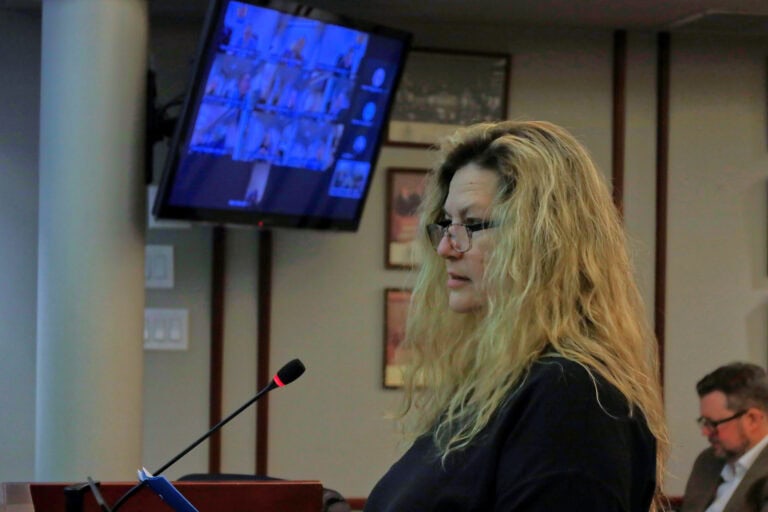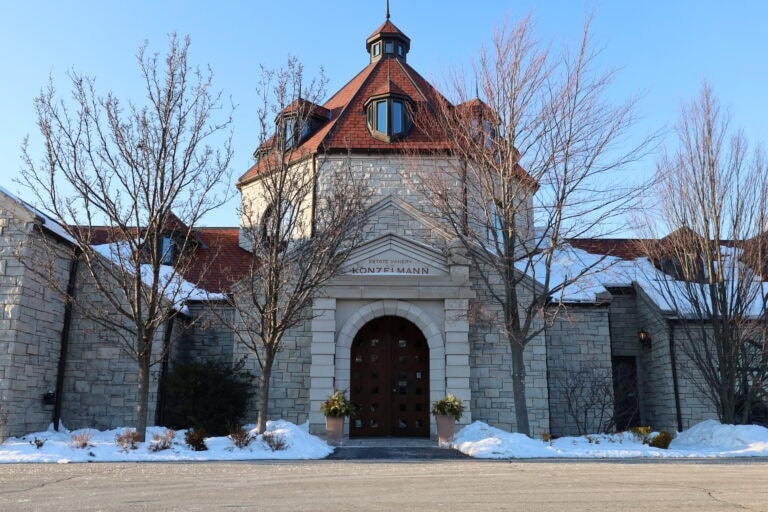The Town of Niagara-on-the-Lake’s decision to pay $225,000 to settle a lawsuit by resident John Black has sparked questions and confusion among some residents and officials.
Black sued the town in 2019, alleging misuse of power and bad faith after claiming his home at 27 Prideaux St. was designated as a heritage property to prevent him from making renovations.
In the aftermath of the settlement, announced last week, one question dominated public discussion: why did the town settle?
The Lake Report posed that question to councillors and officials involved in the case.
Couns. Erwin Wiens and Wendy Cheropita — who were on council when the suit was filed — and Lord Mayor Gary Zalepa all said the town had no choice.
“This was an open-and-shut case of bad faith on the part of the town,” Wiens said.
Zalepa added, “I’m just going to say that the council, nine people, took advice from legal counsel to make a decision with the set of facts that were presented in the statement of allegations. I’ll let that stand for itself.”
The town’s communications co-ordinator, Marah Minor, said: “On the advice of legal counsel, a settlement was determined to be in the town’s best interest given the complex and multi-layered issues involved.”
Wiens said Black was a “victim” and the facts left the town little legal ground to stand on.
“The fact is, the Blacks were mistreated,” he added.
Wiens also noted the $225,000 payment does not include additional legal fees, which the town said were around $20,000.
He said he was misled by then-lord mayor Betty Disero to believe that Black had requested the heritage designation. Upon learning otherwise, Wiens said he apologized to the Blacks.
Wiens initially said, “I was completely unaware of the clandestine meetings that were taking place. I went along with it, but I was in the dark, and I’m disappointed.”
After that interview, Wiens called The Lake Report to apologize and clarify that he didn’t know about any “clandestine meetings.”
Cheropita said she was relieved the settlement amount wasn’t higher, but called it disturbing that two bad-faith cases — lawsuits by Black and developer Rainer Hummel — emerged from 2019.
She also said the lesson as a councillor was not to rely on someone’s word when making a decision.
The town announced on Wednesday it settled the Hummel case for $1 million.
Not everyone agrees with how the town handled the Black lawsuit or the decision to make the settlement public.
Former councillor Stuart McCormack, a retired lawyer, who was on council when Black sued, questioned why the town would publicly announce the settlement.
“Why was this particular one the subject of a public announcement unless it was part of a settlement agreement that took place?” he said. “Usually, parties don’t parade the results around.”
Zalepa, who was a regional councillor when the lawsuit was launched, responded: “All decisions of council are public, as per the Municipal Act.”
Cheropita echoed that point, saying she believed the settlement was made public due to its size: “Resident transparency is critically important.”
McCormack said he couldn’t determine whether the settlement was a good deal without more details, but suggested the town may have accepted Black’s offer to avoid a prolonged and costly legal battle.
“The town may have just decided, ‘Well, it’s cheaper than fighting … and we may or may not win,’ ” he said.
Tom Elltoft, a real estate company co-owner who was named in Black’s lawsuit, said he was confused by the settlement.
“I have no idea if all the facts were ever presented,” he said.
The town only presented the statement of claim and not the statement of defence in its original news release, which drew questions from people like Elltoft, who asked why the town wasn’t giving people the full story, including his side.
The town, through Minor, said, “The statement of claim was shared to provide the context in which the claim was being advanced. The statement of defence effectively denied any wrongdoing.”
Elltoft said he had previously discussed a due diligence clause in Black’s buyer’s contract, which said he could have done his own research into whether his property was on the heritage listing and whether he could build a garage.
He asked why this could not have been brought up during the legal battle.
The town responded to that claim, saying: “The matter does not concern the real estate purchase itself, but rather the conduct of the town, specifically the former council. The lawsuit pertains to the improper steps taken by the town in designating the property, rather than the purchase of the property.”
Some critics have also pointed to a due diligence clause in Black’s real estate purchase offer.
They argue he should have known whether he could build a garage or that the property was heritage-listed, as the clause allowed him time to research.
Disero, who was lord mayor during the original lawsuit, explained how heritage listings work.
“A property is listed to provide a flag should an application come in for alteration or demolition,” she said. “At that point, council only has 60 days to determine whether or not a property should be designated.”
Asked whether she felt the settlement was political, in order to make her and the prior council look bad, she said, “No comment.”
Coun. Gary Burroughs and former councillor Norm Arsenault — both on council at the time — declined to comment.
Lawyers for both sides — Brian Duxworth for Black and Terry Hill for the town — did not respond by press time.










